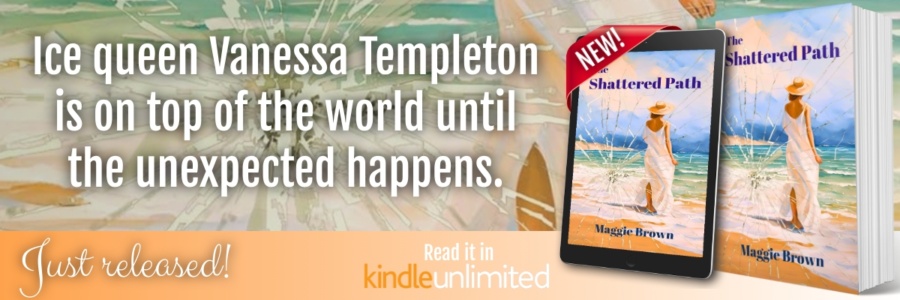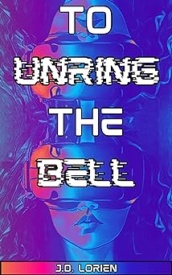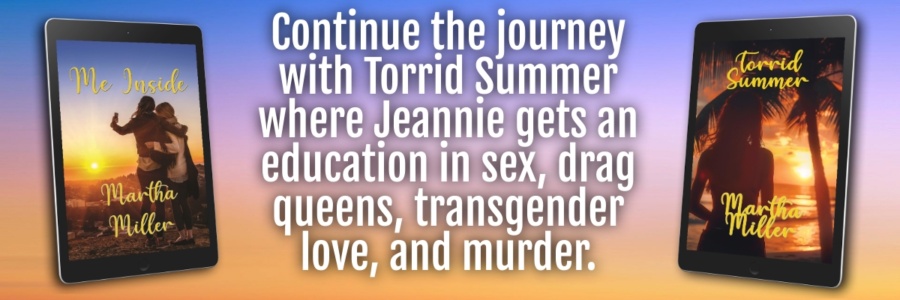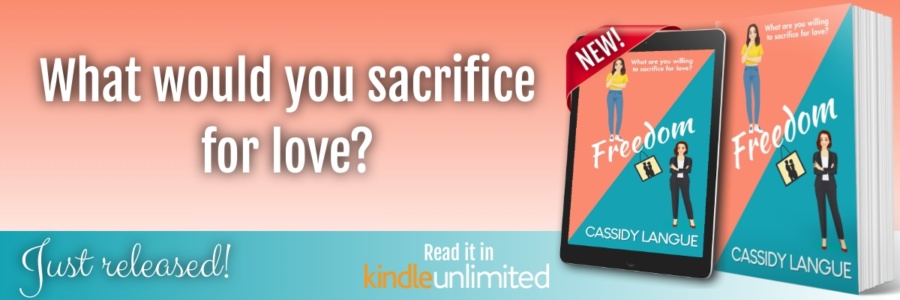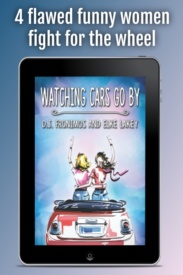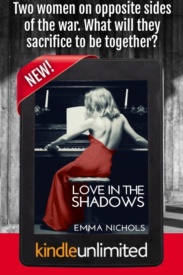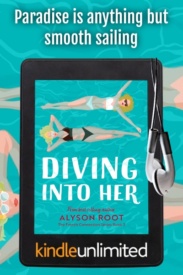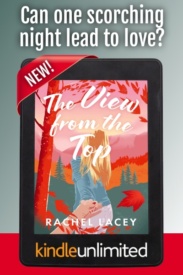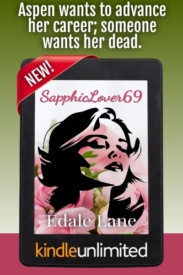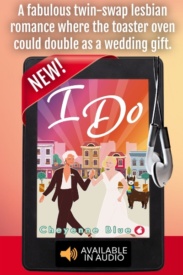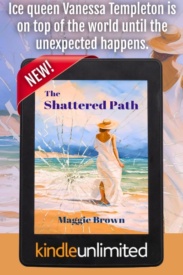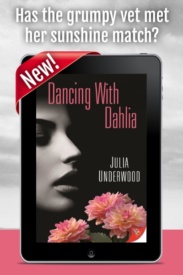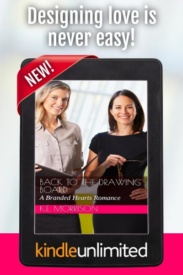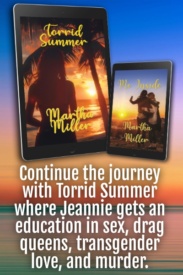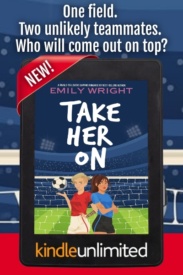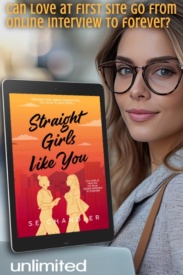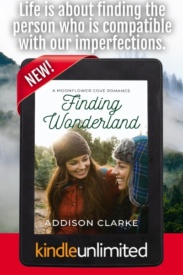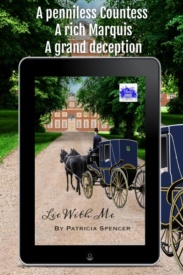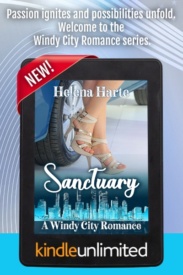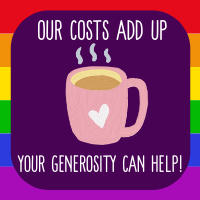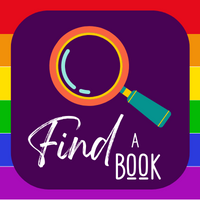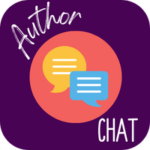
Get ready to learn more about the book To Unring the BELL in this discussion with sapphic author J.D. Lorien.
Join us for an exclusive peek behind the scenes as we quiz J.D. Lorien about To Unring the BELL, writing, reading, and more.
This book is part of the Time Travel category in the 2024 IHS Reading Challenge.
Why did you write To Unring the BELL?
I was actually planning on writing another book, featuring a character from The Story in Your Eyes. But I had this idea for a science fiction book that had been rattling around in my head. When I described how the plot begins to my wife, she absolutely insisted I had to do this one next instead, because she was excited by the mystery of it.
A package arrives from a father my main character never knew, talking about the time they had lost, and propelling her into this twisted journey in search of the truth. I tried very hard to format the story sort of like a video game, or serial fiction, where there were small cliffhangers in most chapters, and always several layers to peel back and reveal the truth.
I was also very interested in the idea of the connection between these two lovers that transcends memories and lifetimes. While the outward plot is solving the bigger mystery, the real story is wrapped up in rediscovering that bond, and how far they would have to go to hold onto it.
The overarching theme is very much about how someone reacts after they realize they have made a terrible mistake. It’s so easy to run away from guilt and the enormity of accepting responsibility for one’s actions. Is it possible to make it right somehow? And if so, what kind of price would they be willing to pay for a chance to unring that bell?
Who is your favorite character in the book?
My main character, Adeline, carries a lot of really specific insecurities about her worth, and her choices. I certainly was able to tap into my own issues and give them a voice and an outlet through her. One of her biggest struggles in the book is that she is seemingly faced with another version of herself that she initially sees as better than her in pretty much every way she could imagine. I identify deeply with that, and it was cathartic for me to take her on a journey to accepting and embracing herself, and her own worth. Not just in comparison to what seem to be these other, seemingly better, more accomplished, versions of her.
Not just in terms of the bigger mystery, but in little, significant differences in their lives, like when and how they came out to their families, what careers they pursued, and what relationships they had.
What inspired the idea for To Unring the BELL?
I have always loved science fiction and time travel stories, especially those that are centered around a love story. I drew a few really specific comparisons to Doctor Who, since the Doctor was a woman at the time I started writing it. I also really loved the idea of using that genre specifically as a mystery that has to be solved, piece by piece. Ideally, someone who reads the book should be able to go back and read it again, having an entirely different understanding of everything that’s happening along the way. That is something I really love about The Locked Tomb series by Tamsyn Muir, so I think I took a little inspiration from that as well.
What was the biggest challenge writing this book?
Telling a story that involves multiple timelines is insanely complicated. Because there are so many little details, not just the big ones, that need to match up, be consistent and make sense. In the final editing stages I literally had to create a whole file just to track those kinds of things. In the final stages of that, I told my wife that if I ever mention wanting to tell a story that involves time travel again, she should whack me in the head with something heavy until I come to my senses.
What part of To Unring the BELL was the most fun to write?
It may be a little twisted, but I had a lot of fun with having constant cliffhangers and moments where hopefully the plot moves off in a direction my readers wouldn’t necessarily anticipate. I love being surprised when I’m reading books. And even more so if I can go back after the fact and see all the things I missed. So I had a lot of fun trying to tell my own version of that kind of story.
How did you come up with the title for your book?
The overarching theme that I focused on was very much about dealing with mistakes and regrets, and the phrase you can’t unring a bell is very much about that idea that mistakes have to be dealt with. Consequences have to be faced. They can’t just be undone.
How much research did you need to do for To Unring the BELL?
I did quite a bit. From researching places that I’m not familiar with, along with some research about how memories actually work, and the condition called HSAM, which is about people who have extraordinary access to their own memories. I think if you’re going to tell a science fiction story, then you should root it in real science as much as possible.
If you’re planning a sequel, can you share a tiny bit about your plans for it?
This story is definitely a one and done. My other contemporary romance books will likely all be connected, but aside from an easter egg or two, I can’t imagine this story being referenced in them.
What is your favorite line from your book?
There’s a line in a note Adeline receives in the very first chapter:
“You must find Dorian.
Tell her she was right. I was the problem all along.”
I love it because that same line comes up multiple times, later in the story, and each time what it seems to mean, and her understanding of what it really means, changes.
What is your writing process like?
My first drafts tend to be by the seat of my pants. In a story that has a tightly woven mystery, I basically had to just get through to the ending and then reverse-engineer everything to weave tightly into the plot.
I think, generally speaking, I had to give myself the freedom to follow the story in whatever direction it took me and the biggest challenge, besides actually making sense of the different timelines, was to let go of my own preconceived notions about it and let the story unfold as I came to understand my own characters better along the way.
Where do you usually write, and what do you need in your writing space to help you stay focused?
We basically moved halfway across the country while I was in the process of writing it. And making myself a little writing nook that was comfortable was a big key to my being able to sit down and grind through the editing process.
If you could spend a day with another popular author, whom would you choose?
I’m too much of a lit nerd to narrow it down to one historical figure, so I’ll say Tamsyn Muir. I really love how utterly fearless her writing has been for the Locked Tomb series. She takes such big swings with characters and how they change and evolve, how important perspective is to understanding someone’s actions, and just embraces chaotically twisted plots, timelines, etc, and trusts that the readers will follow along such a complex, labyrinthine story. It’s brilliant.
What’s your favorite writing snack or drink?
I would classify myself as a beverage girlie. I typically have flavored water (Crystal Light Raspberry Green Tea), an energy drink (Bang Blue Raspberry and V8 Black Cherry are my favs), along with some lemon lime soda or fruit juice. I’m not much of a coffee drinker, unless I’m neck deep in editing. Sometimes I will make mint tea with honey, or a fruit smoothie (soy milk, honey, strawberry protein powder and frozen fruit blended together.)
How do you celebrate when you finish your book?
I buy myself something sweet and indulgent, like donuts or cheesecake, maybe get a bottle of wine, and give myself permission to just relax and not write for a week or so.
Is there a particular genre you would love to write but only under a pseudonym?
I don’t know. I think I’d like to just write in whatever genres I like and hope that my readers would follow along on the journey with me. There’s one story in particular that I’ve had in mind since I was in college and I hope if I ever get the confidence to really write it, the people who like my books now would give it a try. Certainly this book is a totally different genre than The Story in Your Eyes was, and I’m very excited to see what kind of feedback and reaction it gets as compared to that book.
Do you have any odd writing quirks?
My many, many beverages probably would count. Though my one trick is that I keep a package of sour lollipops beside my desk and when I’m having trouble concentrating, the sour flavor somehow helps keep me focused somehow.
Do you have a pet who helps/hinders your typing?
My old man is twelve now. He’s a border collie/lab rescue mutt and I love taking him for walks to help work out plot points in my head.
What animal or object best represents you as an author or your writing style?
I’d say a Phoenix. Because now that I’m finally committed to writing like I always dreamed of, I want to be able to reinvent myself as many times as I want. So that I can explore any genre, any style, any theme, and the only thing they all have in common is being Sapphic. Because I’m writing the books now I wish I could have read as a child.
What are three words that describe your personality?
Neurodivergent- I’ve never been officially diagnosed, but the process of writing Story made me aware of many aspects of how my mind works, and embracing that has given me the ability to also learn how to navigate my own quirks and challenges.
Dreamer- I’m constantly thinking about or imagining stories I’d like to tell. The biggest challenge is focusing on just one long enough to finish it, but I’m always interested in the process of storytelling and paying attention to how stories are told in books/series/movies. Including how I would do things differently, or guessing what will happen next.
Opinionated- I don’t typically share all my opinions with people (except my wife) unless I know them very well, but one of the things that finally motivated me to really go all in on writing these books is because I had a lot of things I wanted to express in a way that was still entertaining, and hopefully thought provoking. There has been a specific scene in each of my books that essentially was the strongest motivation to actually tell those stories.
What is the most valuable piece of advice you’ve been given about writing, and by whom?
When I was a little girl, my mother was working at a jewelry store owned by a sweet old Native American woman. One day, I came in from school and when Mom asked what I studied, I told them we studied Custer’s Last Stand. Next thing I knew, she invited me back into her office. When I got there she began to explain about how important perspective is, like in how history is written by those who won conflicts. She told me about the other side of the conflict, but her true lesson was that nothing can ever be truly understood if only seen from one angle. That was an incredibly formative experience for me, and I carry it still, and all of my writing is informed by that idea of the importance of perspective on how anything or anyone is understood.
What has helped or hindered you most when writing a book?
If I were to go through my files I would probably find at least a dozen story ideas that have vied for my attention. New ideas are exciting and the process of writing itself, when you’re in the middle of it, is such hard work and needs so much concentration. Letting them go and focusing on just my current manuscript is always a battle going on in my mind.
When you’re writing an emotional or difficult scene, how do you set the mood?
I often talk when I’m writing, saying dialogue, or repeating lines until it feels right to me. But if I need to I just go on a long walk and try to really think through what I’m really trying to express and what kinds of tools and devices I can use create the moments with as much truth and complexity as I can.
What do you do to get inside your character’s heads?
I gravitate toward stories and characters that have something I want to explore about myself. So that the process of writing is always going to be an emotional excavation for me. If I don’t learn something about myself through the course of writing a story, there’s no real point for me to write it in the first place.
If you could be mentored by a famous author (living or not), who would it be?
J.R.R. Tolkien. His books were what made me fall in love with literature and the way that he created an entire genre, entire worlds, and creates and histories, even languages. I would love to get any insight into his process.
What author in your genre do you most admire, and why?
I don’t really stick to one particular genre (besides being sapphic) but since this is a science fiction book, I’d definitely stick with Tamsyn Muir. I’d love to have that utter fearlessness and unbridled creativity. There’s only one book left in the Locked Tomb series and the funny thing is that three books deep we as readers still have absolutely no idea what’s coming next.
Have you ever cried when writing an emotional scene?
Absolutely, yes. In The Story in Your Eyes, there’s a very complicated emotional scene that takes place between the protagonist, her sister, and their cousin where a lot of things that have been buried all come to the surface through the course of the conversation. I cried several times during the process of writing that chapter, because I was exorcising some of my own familial demons, I think.
Do you feel bad putting your characters through the wringer?
I can’t go into detail without it being a spoiler, but as a writer I had to really work hard to accept and not shy away from not only Adeline’s faults, but I also had to be willing to not shy away from the most fitting ending for her in the situation I had created. Because if the idea is that there have been multiple versions of her life, then one of them has to win out in the end. That was a really difficult choice to make.
Have you ever hated one of your characters?
There’s a character in Story named Dag who is just a terrible human being, in just about every way. I can’t imagine what redemption for her would look like if she shows up in any more books.
Have you ever fallen in love with one of your characters?
I think, for me, I have to be a little bit in love with main love interests in these books, Greer in Story and Dorian in Bell, for those emotions to come through the stories. The main difficulty is keeping them flawed so they aren’t too idealized.
What type of books do you enjoy reading the most?
I love most lesbian/sapphic genres, but I often gravitate towards books that don’t have just the kind of savagely rip your heart out kind of drama. I don’t get anything out of those, emotionally. Escapism for me is a ride I can enjoy that’s not going to throw me into an emotional crisis.
Are there any books or authors that inspired you to become a writer?
The books I read during the pandemic that really motivated me to go for it were by Robin Alexander (her wit and humor are fantastic), Haley Cass (the drama has a satisfying payoff), Tamsyn Muir (obviously), and of course Tolkien, Mary Shelley, and Octavia Butler.
What books did you grow up reading?
I read everything from Tolkien to VC Andrews, Clive Cussler, and Sidney Sheldon. To fantasy books like Forgotten Realms. I liked that they were all in a shared universe with big characters crossing over, and there were plenty of books with complicated female protagonists. The first lesbian books I read, besides The Color Purple and Fried Green Tomatoes, were Fingersmith by Sarah Waters, and The World Unseen by Shamim Sarif.
What books have you read more than once in your life?
I have reread several of Robin Alexanders books. They are consistently funny and heartwarming. I also really liked Truth and Measure/Above All Things by Roslyn Sinclair and have probably listened to the audiobooks of each at least 3-4 times. It’s comforting to me sometimes just to already know what’s going to happen, the same way I rewatch TV series and movies I love for the same reason.
What book do you wish you had written?
This may sound silly, but I wish I had written a book that took place after the end of the show Xena: Warrior Princess. I had what I still think was a really good idea for how to bring that story to a satisfying ending.
Describe your favorite reading spot.
I have sleep mask headphones and love to curl up in bed and listen to audiobooks.
Do you only read books in one genre or do you genre hop?
It’s my hope that I’ll eventually hit most major genres. I have an epic fantasy story, a paranormal mystery story, other science fiction stories as well as several ideas for contemporary romance. I like the idea of genre hopping as much as possible.
Have you ever thought you’d hate a book, but ended up loving it?
When I originally read the Hunger Games books, I didn’t expect to really like them. YA as a genre is one I am hit or miss with how I feel about them. But they were such amazing, thought-provoking storytelling that I couldn’t help but love them.


